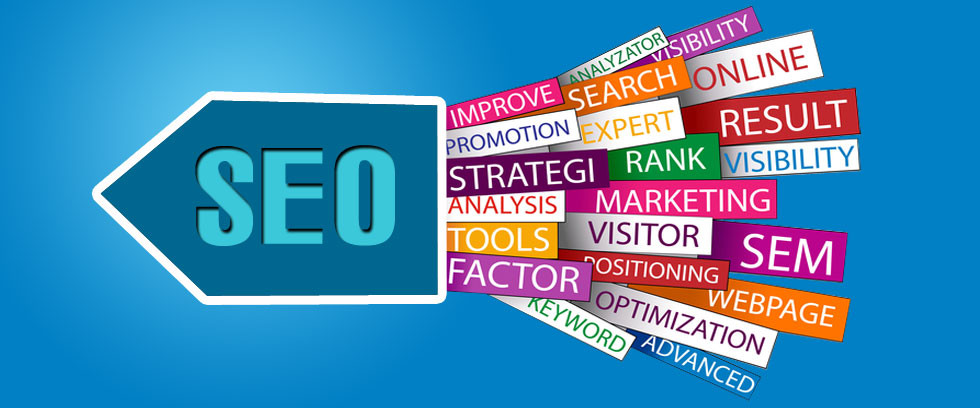If you’ve ever considered your website a garden, think of on-page SEO as the meticulous care that goes into nurturing each plant to bloom at its best. But what exactly does this entail, and why is it crucial for your online presence? Let’s unravel the layers of on-page SEO together, starting with the fundamental elements that shape the success of your digital landscape.
Importance of On-Page SEO
- Understanding the significance of on-page SEO is crucial for optimizing your website’s visibility and ranking in search engine results. Content optimization plays a vital role in on-page SEO. By conducting thorough keyword research and strategically placing these keywords within your content, you can attract more organic traffic to your site.
- User experience is another essential aspect of on-page SEO. Ensuring that your website is easy to navigate, loads quickly, and provides valuable information to visitors can improve your site’s rankings. Meta tags, including meta titles and meta descriptions, are crucial elements that impact how your site appears in search engine results. By optimizing these meta tags with relevant keywords and compelling descriptions, you can increase the click-through rate to your website.

On-Page SEO Elements
- To effectively optimize your website for search engine visibility and ranking, mastering the key on-page SEO elements is essential. Two crucial elements to focus on are keyword optimization and meta tags. Keyword optimization involves strategically placing relevant keywords throughout your content to signal to search engines what your page is about. Incorporating keywords naturally into your headings, titles, and body content can positively impact your search rankings.
- Meta tags, specifically the meta title and meta description, play a significant role in attracting users to click on your website from search engine results pages. Crafting compelling meta tags that include relevant keywords can improve your click-through rate and overall visibility.
- Another vital on-page SEO element is content quality. Providing valuable, engaging content that meets the search intent of users can enhance your site’s authority and relevance, positively impacting your SEO efforts.
- Lastly, internal linking is essential for guiding both users and search engines to other relevant pages on your website. By strategically linking to other pages within your site, you can improve site navigation and distribute link equity effectively. Mastering these on-page SEO elements can significantly boost your website’s search engine performance.
On-Page SEO Vs. Off-Page SEO
- After mastering the key on-page SEO elements like keyword optimization and meta tags, it’s crucial to understand the distinction between On-Page SEO and Off-Page SEO to further enhance your website’s search engine performance.
- On-page SEO strategies primarily focus on optimizing elements within your website itself, such as content quality, HTML tags, and keyword placement. Comparatively, off-page SEO tactics involve external factors like backlinks, social media signals, and online reputation management. While on-page SEO is essential for search engines to understand the relevance of your content, off-page SEO plays a significant role in demonstrating the credibility and authority of your website to search engines.
- Understanding the balance between on-page and off-page SEO is key to a successful SEO strategy. On-page SEO sets the foundation by making your website user-friendly and easily accessible to search engines, while off-page SEO tactics, like acquiring quality backlinks and building a strong online presence, can significantly boost your website’s authority and reputation.
On-Page SEO Best Practices
- When optimizing your website for search engines, implementing on-page SEO best practices is crucial for enhancing your online visibility and ranking performance. Content optimization and keyword research are foundational elements of on-page SEO. By strategically incorporating relevant keywords into your content, meta tags, and headings, you can signal to search engines what your page is about, improving its chances of ranking well for those terms.
- In addition to content optimization, focusing on user experience is key. Ensure your website is easy to navigate, loads quickly, and provides valuable information to visitors. Internal linking, where you link to other pages within your website, helps search engines understand the structure of your site and can improve the flow of traffic between pages.
On-Page SEO Tools
- Implementing on-page SEO tools effectively can significantly enhance your website’s search engine optimization performance. When it comes to SEO analysis, tools like Google Analytics and SEMrush can provide valuable insights into your website’s performance, helping you identify strengths and areas for improvement. These tools offer data on organic traffic, keyword rankings, and user behavior, allowing you to make data-driven decisions to optimize your content.
- Keyword optimization is another crucial aspect of on-page SEO, and tools such as Ahrefs and Moz’s Keyword Explorer can assist you in finding relevant keywords with high search volumes and low competition. By incorporating these tools into your SEO strategy, you can ensure that your content is targeting the right keywords to attract organic traffic.
- Utilizing on-page SEO tools not only streamlines the optimization process but also helps you stay ahead of the competition by constantly monitoring and adjusting your strategies based on data-driven insights. Remember, the key to successful on-page SEO is leveraging the right tools to enhance your website’s visibility and attract more organic traffic.
Conclusion
In conclusion, mastering on-page SEO is crucial for optimizing your website’s visibility and ranking on search engines. By implementing best practices such as optimizing meta tags, improving content quality, and enhancing user experience, you can increase your chances of attracting organic traffic and achieving higher search engine rankings. Utilizing on-page SEO tools to analyze and optimize your website further enhances your SEO strategy, ensuring that your site is primed for success in the competitive digital landscape.